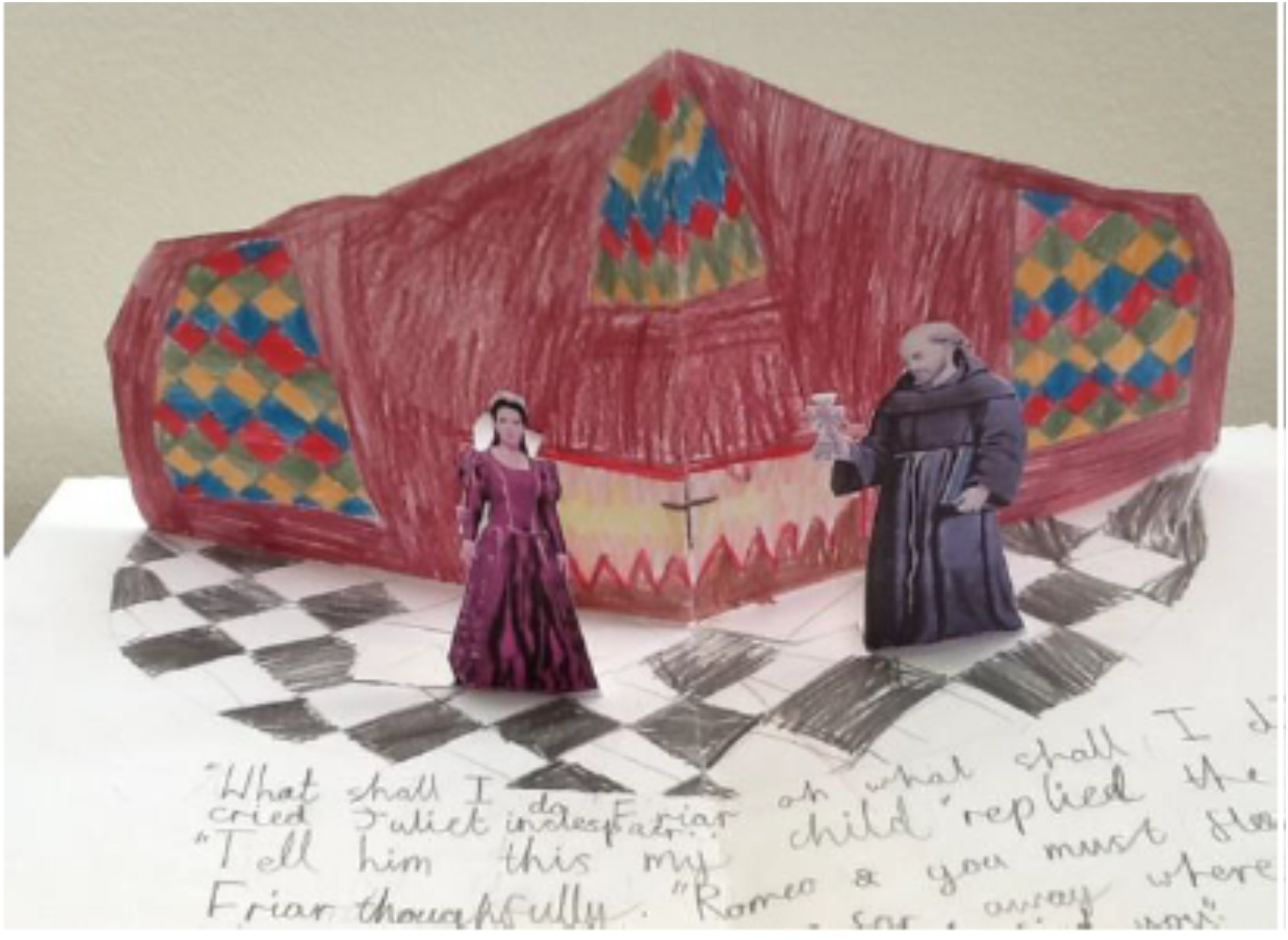
From fear to fun and learning
Drama is a highly effective teaching tool in schools, so why don’t teachers use it more, asks Luke Hollowell-Williams.
Over the last seven years, The Primary Shakespeare Company has been asking schools to commit to putting drama at the centre of their curriculum for one half-term a year. Teachers’ responses have been nothing if not creative. We expected newspaper articles reporting the outrageous imprisonment of Hermione when we did The Winter’s Tale. We were also unsurprised by the copious diary entries of Pericles, and positively blasé about Prospero’s new spell book when we worked on The Tempest.
Drama has something of an image problem – a whiff of chaos follows it around
But we were not prepared for experiments which investigated the rate at which Ophelia’s necklace would rust after drowning, statistical charts ranking Shakespeare’s plays by the number of deaths, tapestries recounting the tale of Macbeth, or pop-up books offering compelling versions of Romeo and Juliet. Nor did we expect a series of recipes for stage, or the design and production of starkly strange masks for one performance of Hamlet. I could go on, but there are more examples on our website.
These examples are the tip of an iceberg of work in which children have been the beneficiaries. Exciting and engaging, they have fed off the drama stimulus provided not only by us but, more importantly and increasingly, by the teachers themselves.
This latter development has been achieved through a number of factors. First, the retention rate of the project: 95% of schools that sign up continue to do the project year after year, enabling staff, children and parents to see the accruing benefits of using drama. Second, schools are advised to allow teachers to repeat the project, allowing them to consolidate confidence and skill in the use of drama techniques. Finally, we run a series of courses that help teachers at all levels to use this skill right across their classroom practice.
The fear of drama lessons
Fear is sometimes a wonderful thing. The cold sweat of panic that a student teacher feels when they first take responsibility for a class is a fantastic motivating force for getting better at what you do. Theorists quickly become pragmatists, looking around, seeking to acquire useful methods from more experienced colleagues. Most quickly arrive at a simple yet effective way of assessing strategies. Does it work? At this stage in your career you learn very fast, in a concerted effort to head back towards your comfort zone.
This is where drama as a teaching technique has something of a problem. There’s not much of it about when you’re training – half a day, a day at most, in the year of a postgraduate course. And it’s not much more if you do the full BEd (with a few exceptions). So you’re unlikely to see it used much by those more experienced colleagues just at the point when you’re looking for solutions. What's more, drama has something of an image problem – a whiff of chaos follows it around.
So this is what Neil Carter, our Programme Coordinator and I, do. We’re persuaders for drama. Why? Because it not only works but is one of the most effective strategies there is. 16 years ago, children at the school in which I teach struggled to achieve, and SATS results were whole tens of percentage points below the national average.
It was at this point, when a new headteacher introduced a drama-centred curriculum, that everything changed. After seven years the school was judged outstanding in all areas, with Ofsted noting that: “A particular strength of the curriculum is the performing arts.”
Subsequent interim inspections from both Ofsted and the National Society have continued to attribute the success of children to this approach.
How does it work?
Briefly, I believe that there are three key qualities that make using drama as a teaching tool highly effective. First, it’s playful. Not frivolous, but playful. That way of learning that we see children use so effectively in their early years, but which disappears as children go up the school. Drama keeps that alive.
Second, it gives purpose to learning. In most drama sessions, we’re actually making something: a scene, a presentation, sometimes a visual representation of a setting, but something palpable is achieved.
Third, it’s immersive. Children imagine themselves to be characters, inhabiting that character’s world, facing their dilemmas, taking their decisions. When they sit down to write after such a session, the blank page in front of them is more often than not quickly filled.
A research project
We need more drama in schools. The problems that I describe above are compounded by recent policy decisions that have devalued it and reduced its status. Next year we hope to begin a research project that will demonstrate more forcibly the beneficial impact of drama on learning. We’ll also be organising a symposium to make the voices of all those who believe this more audible.
Luke Hollowell-Williams is Artistic Director of Primary Shakespeare Company and a teacher.
www.primaryshakespearecompany.org
Join the Discussion
You must be logged in to post a comment.